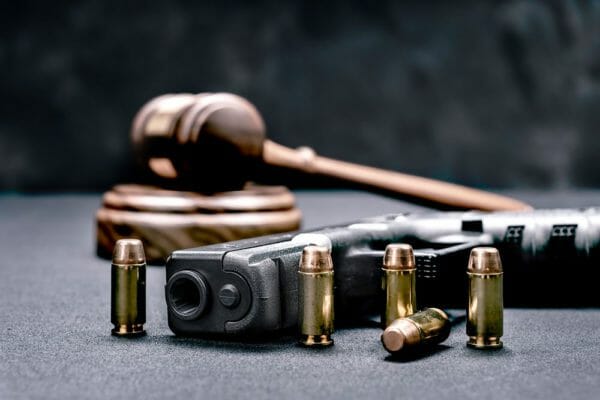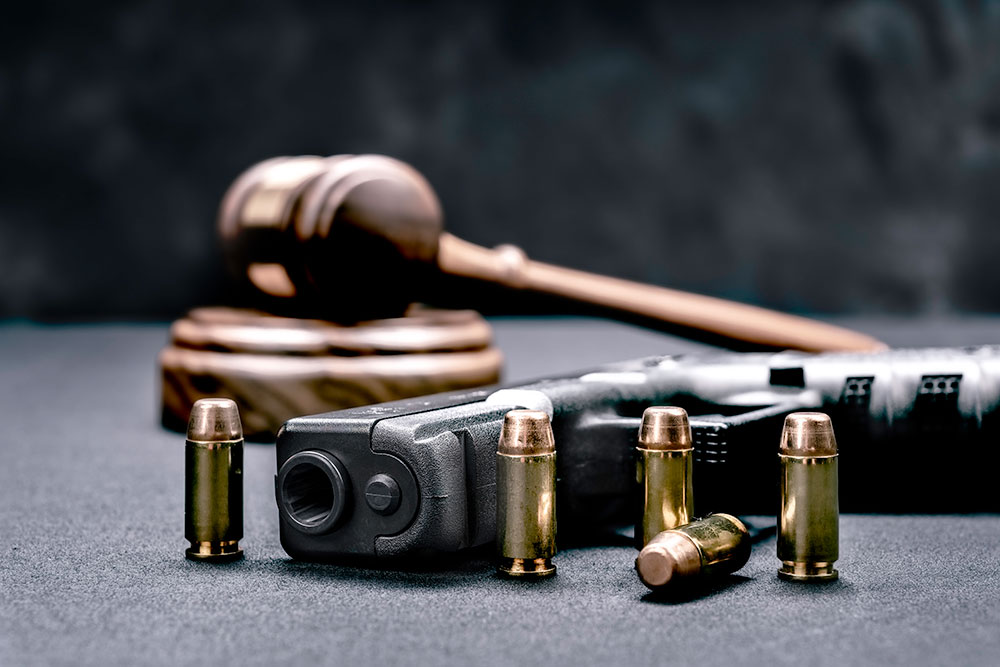
America Court docket of Appeals for The District of Columbia Circuit disregarded the textual content, historical past, and custom of the Second Modification and dominated that DC’s journal ban is Constitutional.
The case, Hanson v. District of Columbia, challenged town’s ban on magazines holding greater than ten rounds. The plaintiffs needed to personal 17-round magazines, the usual dimension for Glock 17s and different full-size handguns. The Circuit Court docket referred to those magazines as extra-large capability magazines (ELCM).
A District Court docket upheld the regulation earlier, main the plaintiffs to enchantment to a three-judge panel on the DC Circuit Court docket. They argued that the District Court docket acquired it flawed as a result of the regulation was unconstitutional below the Bruen and Heller requirements. DC claimed that the regulation was throughout the scope of the Second Modification and per each these instances.
The Supreme Court docket’s Heller opinion stated {that a} bearable arm in frequent use for lawful functions can’t be banned. DC argued that magazines holding greater than ten rounds are hardly ever utilized in self-defense and, due to this fact, usually are not generally used for self-defense. The plaintiffs countered that simply because most self-defense conditions require lower than ten photographs doesn’t imply these weapons weren’t outfitted with magazines holding greater than ten rounds. The judges agreed with the plaintiffs.
The Supreme Court docket’s Bruen opinion stated {that a} gun regulation should be per the unique textual content of the Second Modification and the nation’s historical past and custom of firearms laws from the founding period. For the reason that courtroom discovered that magazines holding greater than ten rounds have been bearable arms protected by the Second Modification, the case moved to the second step of the Bruen check.
The federal government should present historic analogues from the founding period that present the present regulation is per the custom and historical past of the Second Modification. Most authorized students and courts consider that the founding period was the ratification date of the Second Modification in 1791. DC tried to make use of gunpowder storage legal guidelines to fulfill the courtroom. The judges identified that based on the Supreme Court docket’s Rahimi opinion, a regulation doesn’t need to be a historic twin however does need to be related, and gunpowder legal guidelines have been about stopping fires, not disarming the folks.
The District would additionally provide up two different examples of legal guidelines. One was a ban on Bowie knives from the late 1800s and a twenty-century journal capability ban for Thompson Sub Machineguns. Two judges purchased into these arguments, with the third writing a blistering dissent rejecting DC’s argument.
“The bulk’s opposite conclusion will depend on two kinds of laws,” Decide Justin Walker wrote. “However neither of them is analogous. The primary of them — a ‘handful’ of legal guidelines enacted almost a century after the Second Modification’s ratification in two outlier states and a territory — didn’t cowl arms saved at residence or carried whereas touring; as well as, these legal guidelines are too little and too late to determine a historic custom. As for the second purported analogue, it coated solely ‘uncommon’ arms — not arms in frequent use for lawful functions. So neither demonstrates a practice of legal guidelines imposing a burden corresponding to DC’s full ban on generally possessed plus-ten magazines.”
The historic analyses wouldn’t matter as a result of the judges stated that even when there aren’t any historic analogues and, the Second Modification did shield magazines holding greater than ten rounds. DC might nonetheless ban them as a result of they “implicate unprecedented societal considerations and dramatic technological adjustments.” Decide Walker, a Trump appointee, factors out that this has by no means been a class utilized by the courts, and the Supreme Court docket has rejected the reasoning that the opposite judges used within the Bruen resolution.
Decide Walker is speaking about curiosity balancing, also called intermediate scrutiny. Intermediate scrutiny weighs the states’ desires vs. the folks’s rights. SCOTUS was very clear in Bruen. Courts can not use curiosity balancing to uphold unconstitutional gun legal guidelines, which seems to be what two of the three judges did on the panel.
As of now, the DC regulation will stay in impact. The plaintiffs can ask for an en banc listening to the place the entire bench would hear the argument. The panel’s resolution can be vacated if an en banc listening to is granted. The plaintiffs also can go on to SCOTUS, the place the Justices would possibly take up the case since many within the authorized area view this resolution as ignoring Bruen.
About John Crump
Mr. Crump is an NRA teacher and a constitutional activist. John has written about firearms, interviewed folks from all walks of life, and on the Structure. John lives in Northern Virginia along with his spouse and sons, observe him on X at @crumpyss, or at www.crumpy.com.























